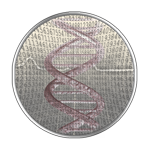Major Systems Biology

Systems Biology
Following the identification of the parts of biological systems, the interdisciplinary field of systems biology combines quantitative data generation and mathematical modelling to elucidate general principles governing emergent properties of complex systems that give rise to biological functions. Due to the non-linearity of relationships in biological networks it is not possible to deduce function from the properties of individual molecules but rather by considering the dynamic interplay of systems components. Major open questions are: How is information processed and linked to cell fate decisions? How is specificity achieved? Which parameters determine the robustness of biological systems? The approach of systems biology is fuelled by tremendous advances in high-throughput data generation and in the analysis at the single cell level in combination with the development of suitable modelling tools. Systems biology facilitates the establishment of new paradigms and the identification of targets for efficient intervention. Thereby, it holds outstanding promise for biomedical research, which is a major topic in Heidelberg.
The Major Systems Biology covers fundamental topics in cell biology, molecular biology, dynamic pathway, as well as multi-scale modelling, bioinformatics and computational analysis. In-depth training in multi-disciplinary approaches will be provided by lectures, tutorials and seminars that are accompanied by practical courses. Thereby, the Major Systems Biology uniquely prepares students for developing novel strategies to address key questions in biological systems.
More information about Systems Biology in general can be found on the website: www.systembiologie.de. Although the site is in German, some of the digital magazines mentioned there are in English.





